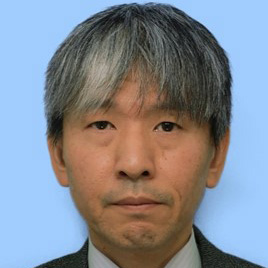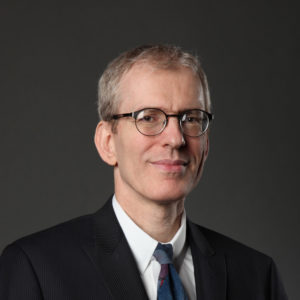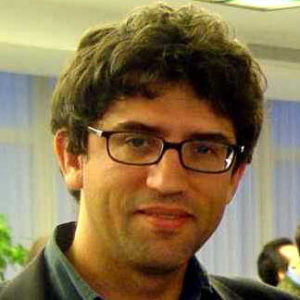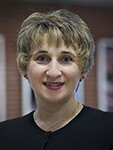W7: Distributed/Cell-Free Massive MIMO for Beyond 5G Networks
Co-chair: Yoji Kishi, KDDI Research Inc., Japan
Co-chair: Andreas F. Molisch, University of Southern California, USA
Co-chair: Giuseppe Caire, Technische Universität Berlin, Germany
Co-chair: Octavia A. Dobre, Memorial University, Canada
Keynote Speaker: Erik G. Larsson, Linkoping University, Sweden
Keynote Speaker: Pranav Madadi, Samsung Research USA, USA
Abstract: Distributed/Cell-Free massive MIMO has been a very active research topic in the past few years, and represents an attractive technology for next generation wireless networks beyond the current deployment of 5G. However, several questions and technical issues remain to be fully addressed in terms of real-world deployment, scalability, energy efficiency, operating frequency bands, OPEX and CAPEX effectiveness, and so on. This workshop will bring together leading researchers from industry and academia with the purpose of sharing their latest progress on these topics, and identify/discuss open issues and challenges for realizing and deploying distributed/cell-free massive MIMO for beyond 5G networks.
Co-chair Bios:
 Yoji Kishi
Yoji Kishi
Bio: Yoji KISHI received B.S. and M.S. degrees from Kyoto University, Japan in 1989 and 1991, respectively. He joined KDDI and engaged in the research and development on communications network planning and optimization for mobile, optical and satellite networks. Since 2016, he has been the head of future access network division. In addition to the research on beyond 5G/6G, the division deals with mobile antenna and propagation, dynamic spectrum sharing and access, software defined/ visualized RAN and so forth.
 Andreas F. Molisch
Andreas F. Molisch
Bio: Andreas F. Molisch (Fellow, IEEE) received the Dipl.Ing., Ph.D., and Habilitation degrees from the Vienna University of Technology, Vienna, Austria, in 1990, 1994, and 1999, respectively.,He spent the next ten years in the industry, at FTW, Vienna, AT&T (Bell) Laboratories, Middletown, NJ, USA, and Mitsubishi Electric Research Labs, Cambridge, MA, USA, (where he rose to Chief Wireless Standards Architect). In 2009, he joined the University of Southern California (USC), Los Angeles, CA, USA, as a Professor, and founded the Wireless Devices and Systems (WiDeS) Group. In 2017, he was appointed to the Solomon Golomb—Andrew and Erna Viterbi Chair. Overall, he has published four books (among them the textbook Wireless Communications, currently in its second edition), 21 book chapters, 260 journal articles, and 360 conference papers. He is also the inventor of 60 granted (and more than 20 pending) patents and a coauthor of some 70 standards contributions. His research interests revolve around wireless propagation channels, wireless systems design, and their interaction. Recently, his main interests have been wireless channel measurement and modeling for 5G and beyond 5G systems, joint communication caching computation, hybrid beamforming, ultra wide band (UWB)-/time of arrival (TOA)-based localization, and novel modulation/multiple access methods.,Dr. Molisch is a Fellow of the National Academy of Inventors, the American Association for Advancement of Science (AAAS), and the Institution of Engineering and Technology (IET), an IEEE Distinguished Lecturer, and a member of the Austrian Academy of Sciences. He received numerous awards, among them the IET Achievement Medal, the Technical Achievement Awards of the IEEE Vehicular Technology Society (Evans Avant Garde Award) and the IEEE Communications Society (Edwin Howard Armstrong Award), the Technical Field Award of the IEEE for Communications, and the Eric Sumner Award. He has been an editor of a number of journals and special issues, the general chair, the technical program committee chair, the symposium chair of multiple international conferences, and the chairman of various international standardization groups.
 Giuseppe Caire
Giuseppe Caire
Bio: Giuseppe Caire is currently an Alexander von Humboldt Professor with the Faculty of Electrical Engineering and Computer Science at the Technical University of Berlin, Germany. He received the Jack Neubauer Best System Paper Award from the IEEE Vehicular Technology Society in 2003; the IEEE Communications Society and Information Theory Society Joint Paper Award in 2004 and in 2011; the Okawa Research Award in 2006; the Alexander von Humboldt Professorship in 2014; the Vodafone Innovation Prize in 2015; an ERC Advanced Grant in 2018; the Leonard G. Abraham Prize for best IEEE JSAC paper in 2019; and the IEEE Communications Society Edwin Howard Armstrong Achievement Award in 2020. He is a recipient of the 2021 Leibinz Prize of the German National Science Foundation (DFG). He has been a Fellow of IEEE since 2005. He has served in the Board of Governors of the IEEE Information Theory Society from 2004 to 2007, and as an officer from 2008 to 2013. He was President of the IEEE Information Theory Society in 2011.
 Octavia A. Dobre
Octavia A. Dobre
Bio: Octavia A. Dobre (Fellow, IEEE) received the Dipl.Ing. and Ph.D. degrees from the Polytechnic Institute of Bucharest, Romania, in 1991 and 2000, respectively. Between 2002 and 2005, she was with New Jersey Institute of Technology, USA. In 2005, she joined Memorial University, Canada, where she is currently a Professor and the Research Chair. She was a Visiting Professor with Massachusetts Institute of Technology, USA, and the Université de Bretagne Occidentale, France. Her research interests encompass wireless, optical, and underwater communication technologies. She has (co)authored over 350 refereed articles in these areas. She is a fellow of the Engineering Institute of Canada and the Canadian Academy of Engineering. She was a Fulbright Scholar, a Royal Society Scholar, and a Distinguished Lecturer of the IEEE Communications Society. She obtained the best paper awards at various conferences, including IEEE ICC, IEEE GLOBECOM, IEEE WCNC, and IEEE PIMRC. She serves as the Editor-in-Chief (EiC) of the IEEE Open Journal of the Communications Society. She served as the general chair, the technical program co-chair, the tutorial co-chair, and the technical co-chair for symposia at numerous conferences. She was the EiC of the IEEE Communications Letters, a senior editor, an editor, and a guest editor for various prestigious journals and magazines.
Deadlines:
Workshop paper submissions due EXTENDED: 23 March 2022
Acceptance notification: 17 April 2022
Final paper submission due: 1 May 2022
To submit a paper to this workshop, please visit: https://vtc2022s-rr-wks.trackchair.com/track/2042
